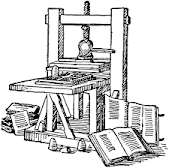When an author says "my publisher" it's a great feeling. If you're considering whether to seek a publisher or self-publish, it helps to understand the different types of publishers and how the process works. For any method or firm, ask other authors to share their experiences or at least get information through a Google search.
I recommend Writer’s Market, an annual publication. It has good overview articles and describes many publishers. If you aren’t sure about spending money on the book, examine a copy in your library.
Major (Trade) Publishing Houses. Termed the “Big Five,” all are in New York. The are:
- Penguin/Random House
- Hachette Book Group
- Harper Collins
- Simon and Schuster
- Macmillan
They have absorbed many smaller publishers, so some of their imprints will sound familiar. For example, St. Martin’s is part of Macmillan and Little Brown is within Hachette.
Small Presses, which often cater to literary fiction or specific genres. Jane Friedman's blog has a good article about them.
University Presses, which publish more nonfiction than fiction, and generally the latter only if it has some ties to their school or region.
Textbook Publishers. Their contacts and contracts with school systems make them important to deal with if you want to publish a text.
Independent or “Really Small” Presses. Some are newer and use print-on-demand technology. Others have been around for years, but publish only a few titles per year.
Hybrid Publishing Firms. These help an author with some of the steps, for a fee. They may sell authors’ books on their website and place them on other retail sites, but authors usually do most marketing. If you don't intend to publish a lot of books or really don't want to tackle self-publishing, these could be an option.
Vanity Presses. They are essentially printers who, for what I consider a large fee, print books and mail copies to the client. The author promotes and distributes the books. Avoid them. (Some now call themselves hybrid publishers, so you need to watch for this.)
The major publishers give an author the visibility most dream of and can get books in any bookstore. Don’t give up if your agent can’t get you a Big Five contract. Some of the best authors will not make it to these ranks, but their books are well read.And there's the important word -- agent. All of the major publishing houses require them. Essentially, an agent separates the wheat from the chaff for them. At the Writer's Market site there is also a book on literary agents, and Poets and Writers has a good list. Agents have to be picky. They don't represent all kinds of books, and they only get paid if they sell your work.
I sound like a broken record sometimes, but you only get one chance to make a first impression. Whether you're submitting to an agent or publisher, make sure you have a polished product. Equally important, follow their guidelines.
The next article on publishing will focus on issues to consider as you consider a publisher.
* * *
To learn more about Elaine, go to elaineorr.com or sign up for her newsletter.

No comments:
Post a Comment